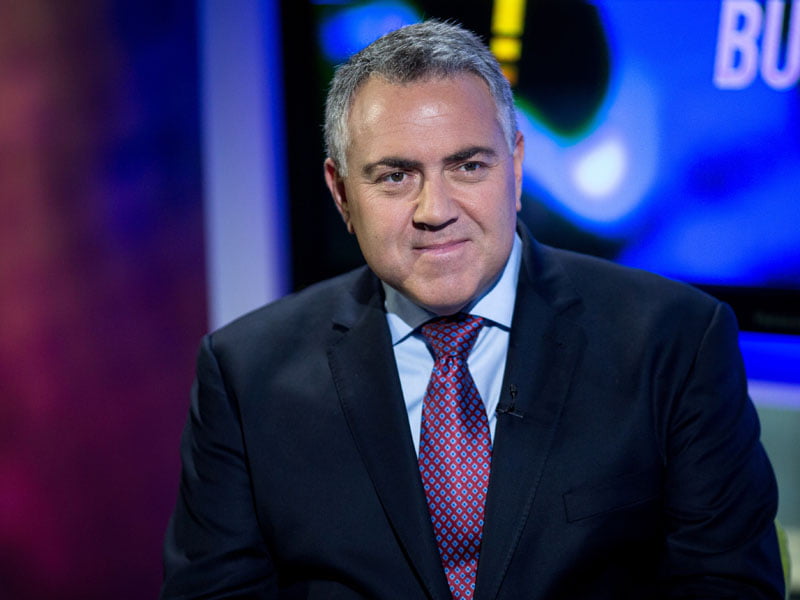Joe Hockey continues to conflate the notional idea of what a small business is and what a startup company is. This is not a sackable offense for a Treasurer, although it is probably enough to get you lynched among the inner-city Kool Aid-sipping set.
Perhaps he was playing to his audience during this speech to the powerful Council of Small Business of Australia’s annual summit in Sydney last week. But he did the same in his Budget address in May.
The Treasurer can serve up homilies from his father about the agility and attractiveness of small business in one breath (“My dad always said to me, small fish are sweet”) and in the next describe the arc of growth (let’s call it a Hockey-shtick) that took Jack Ma’s Alibaba from an apartment in Hangzhou to a $200 billion NYSE float in 16 years.

It is enough to give you vertigo. His point was, I guess, that large global businesses were once small businesses. And therefore small businesses are good. You can follow the logic here when he applies it to the tech and digital space (these are small business that can become very big, very quickly.)
If you stare at the horizon and hold on tight, once you get over the dizziness of Mr Hockey’s aphorisms, you start to hear a comforting message being developed by this government.
Firstly that the overwhelming majority of policy levers that a Treasurer has at his disposal will assist a small business just as it assists a startup. And secondly that it is the Treasurer who is actually saying it.
A grocery store and an internet-based accounting package may not be the same thing, but each can derive benefit from the same policy thinking, and the fact the Treasurer is even talking about tech issues at all is a good thing.
Just a couple of years ago, this would not have been the case. So rejoice, people!
And besides, the small business package delivered in the May budget was undeniably good for small business. The asset deduction changes and the removal of the fringe benefit taxes on portable electronic devices alone is reason to be cheerful.
We know that Mr Hockey has been engaging with the tech sector because of story he relates about 3P Learning, the developers of the global online learning phenomenon Mathletics. Mr Hockey had not heard of Mathletics which, if nothing else, demonstrates how little he must oversee his kids’ homework (seriously, how can you avoid knowing about Mathletics?)
“Silicon Valley does not have a monopoly on innovation,” Mr Hockey says, before adding innovation can even happen in North Sydney (where 3P Learning is based.)
“I see the role of Government as one that facilitates new ideas and new markets. We’re a facilitator,” he says. “We have to create the right environment for small business to invest and grow with confidence. In short, we want, and we need Australian small businesses to ‘have a go’.”
Like I said, of you can get past some of the clunkiness, this is a pretty interesting speech. You should read it here. I would take issue with his characterisation of “global disruption as the new black” like the structural forces that are reshaping economies are fad-like, and need only be humoured.
“[Disruptors] have the ability to transform the way our economies operate, where jobs are created and how we live our lives. At the heart of all of this is small business. Today’s small business start-ups and entrepreneurs are tomorrow’s global disrupters.”
Such a glorious statement does not inspire confidence. At face value, it is hard to have any confidence that the Treasurer is across the complexity and nuance. But the fact that he is talking about it at least demonstrates he thinks it’s important.
Joe Hockey wasn’t the only one talking disruption and jobs at the COSBOA summit last week. Bill Shorten gave his jobs of the future stump speech at the conference last Thursday night. Mr Shorten also had a bit to say about innovation ecosystems and all that good stuff. You can read it here.
Mr Shorten has a better long game than the Coalition in Labor’s education commitments regarding improving STEM teaching skills (and then graduate STEM skills), as well as kids coding curriculum. But that’s a long-term, generational change. And frankly this is the kind of long term commitment that should at least have bipartisan in-principle support.
But where Mr Shorten is clearly off his gourd is the Opposition plan for a $500 million Smart Investment Fund. This proposal sounds very 1999. Seriously, it would save everyone a lot of emotional energy if they just took the $500 million and set it on fire so that everyone could get back to focusing on something useful.
The most fascinating revelation in the Bill Shorten speech came when he said the shadow Treasurer Chris Bowen had given him a copy of The Second Machine Age for Christmas. This is the latest must read in the innovation sector.
Even if the book is still on the to-read list, it is heartening that the senior political leadership is taking an interest.
Do you know more? Contact James Riley via Email.

